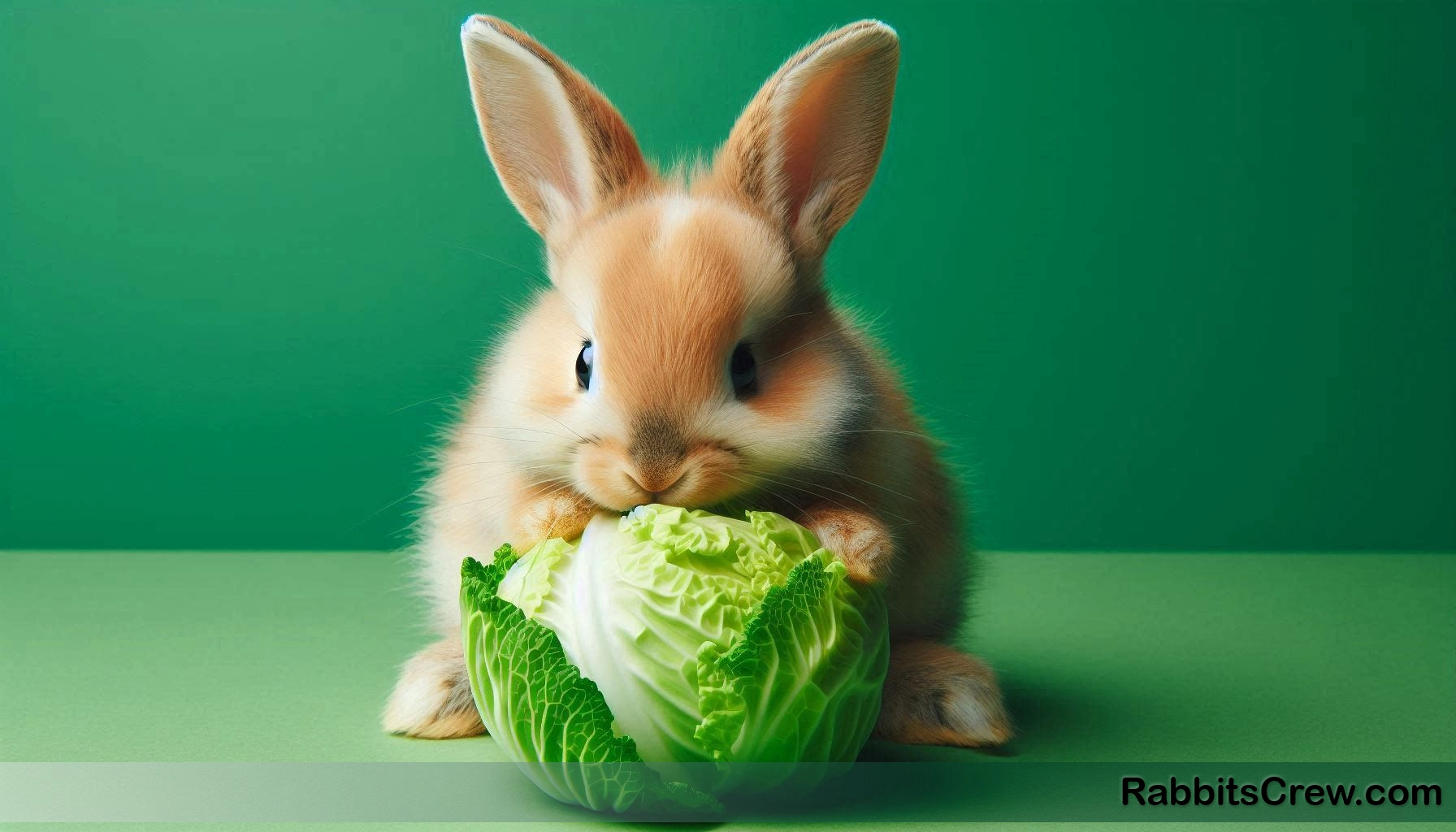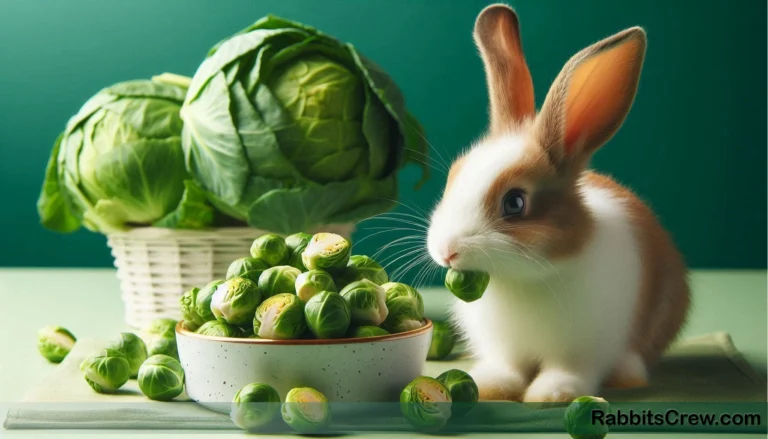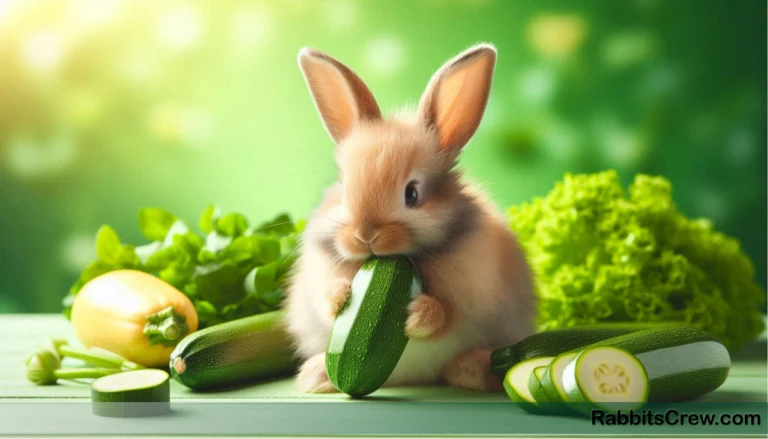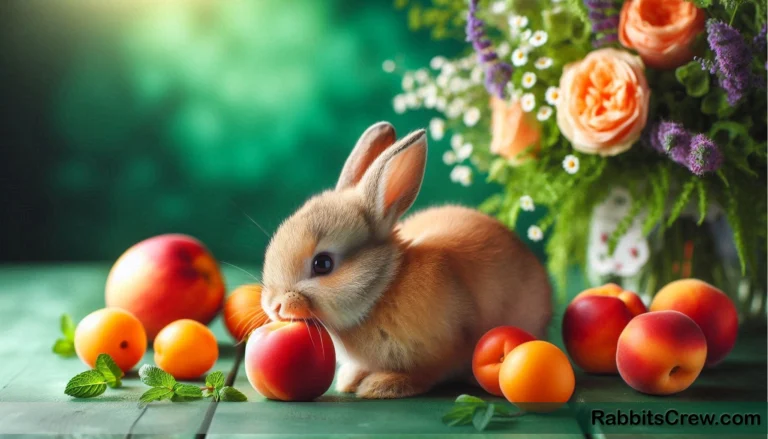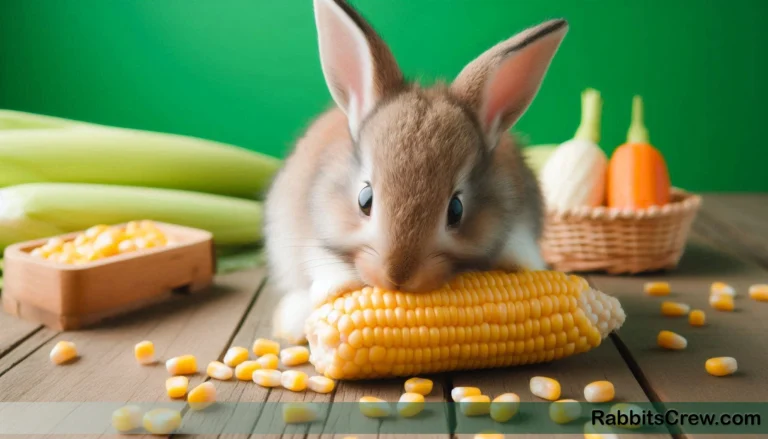Can Rabbits Eat Cabbage, Leaves, Core, Stalks? [Answered]
Rabbits can eat cabbage leaves, core, and stalks in small amounts. It’s nutritious but can cause gas. Introduce slowly and watch for digestive issues.
Cabbage can be a nutritious addition to a rabbit’s diet when fed in moderation. While rabbits can safely consume cabbage, it’s important to introduce it gradually and monitor for any digestive issues. Cabbage provides vitamins and fiber, but its high water content and potential to cause gas mean it should only be offered as an occasional treat.
Table 1: Cabbage Components and Rabbit Safety
| Component | Safe for Rabbits? | Notes |
|---|---|---|
| Leaves | Yes | Nutrient-rich; should be washed thoroughly to remove pesticides |
| Stalks | Yes, in moderation | Tougher and less nutrient-dense than leaves; may be harder to digest. |
| Core | Yes, sparingly | More fibrous than leaves; rabbits may find it harder to chew and digest |
| Outer Leaves | Yes | Often tougher and more fibrous than inner leaves; should be washed thoroughly before feeding. |
| Inner Leaves | Yes | Tender and nutrient-dense; preferable for feeding rabbits |
| Seeds | No | Should be avoided; may cause digestive issues if consumed. |
| Roots | No | Not suitable for rabbits; may cause digestive upset. |
| Purple Cabbage | Yes | Similar to green cabbage but with added antioxidants; feed in moderation. |
| Savoy Cabbage | Yes | Crinkly leaves offer a texture variation; feed in moderation. |
This table summarizes the safety of different cabbage components for rabbits, helping rabbit keepers make informed decisions about their pets’ diet.
Can rabbits eat cabbage?
Yes, rabbits can eat cabbage, but it should be given in moderation as part of a balanced diet. Cabbage is rich in nutrients and fiber, which can benefit rabbits. However, it’s crucial to introduce it slowly and observe your rabbit’s reaction, as some bunnies may experience digestive discomfort.
Table 2: The approximate nutritional content of cabbage per 100 grams.
| Nutrient | Amount per 100g |
|---|---|
| Calories | 25 kcal |
| Water | 92.18 g |
| Protein | 1.28 g |
| Fat | 0.1 g |
| Carbohydrates | 5.8 g |
| Fiber | 2.5 g |
| Sugars | 3.2 g |
| Vitamin C | 36.6 mg |
| Vitamin K | 76 μg |
| Folate (Vitamin B9) | 43 μg |
| Calcium | 40 mg |
| Iron | 0.47 mg |
| Magnesium | 12 mg |
| Phosphorus | 26 mg |
| Potassium | 170 mg |
| Manganese | 0.16 mg |
| Sodium | 18 mg |
| Zinc | 0.18 mg |
This nutritional content table can help rabbit owners understand the basic nutrients present in cabbage and make informed decisions about incorporating it into their rabbits’ diet.
Special Note: The values provided are approximate and can vary based on factors such as variety and growing conditions.
How Much Cabbage Can I Feed My Rabbit?
When introducing cabbage to your rabbit’s diet, start with very small amounts – perhaps one leaf at a time, and not on consecutive days. Monitor your rabbit’s digestion and adjust the amount accordingly. As a general rule, cabbage should make up no more than 10-15% of your rabbit’s daily vegetable intake.
Table 3: Cucumber’s Nutrient Content per 100g
| Frequency | Amount of Cabbage | Notes |
| Daily | Small leaves or 1-2 tablespoons of chopped cabbage | As part of a varied diet; should not be the primary food source |
| Weekly | 2-3 times per week | Rotated with other leafy greens and vegetables. |
| Monthly | Occasional treat | Offered sparingly to avoid digestive issues. |
This table serves as a guideline to help rabbit keepers manage the frequency and quantity of cabbage in their pets’ diets, promoting balanced nutrition and digestive health.
Can rabbits eat cabbage cores?
While rabbits can eat cabbage leaves, it’s best to avoid feeding them the cabbage core. The core is tougher and may be more difficult for rabbits to digest.
Can rabbits eat cabbage leaves?
Yes, rabbits can eat cabbage leaves. Both red and green cabbage leaves are safe for rabbits to consume. However, always wash the leaves thoroughly to remove any dirt or pesticides before offering them to your rabbit.
Can rabbits eat cabbage stalks?
It’s best to avoid feeding cabbage stalks to rabbits. The stalks are tougher and may pose a choking hazard or be difficult for rabbits to digest.
Can rabbits eat purple cabbage?
Yes, rabbits can eat purple (red) cabbage. In fact, red cabbage is generally lower in calcium compared to green cabbage, which can be beneficial for rabbits prone to calcium-related issues.
Can rabbits eat savoy cabbage?
Savoy cabbage can be fed to rabbits in moderation, similar to other types of cabbage. However, always introduce new foods gradually and monitor your rabbit’s reaction.
Health Benefits of Cabbage for rabbits
Cabbage offers several health benefits for rabbits:
– Rich in vitamins A, C, and K
– Good source of dietary fiber
– High water content, aiding in hydration
– Provides variety in diet, encouraging healthy eating habits
Dangers of Cabbage for rabbits
While cabbage can be beneficial, there are potential risks:
– May cause gas and digestive discomfort in some rabbits
– High calcium content can lead to urinary problems if overfed
– Excessive consumption may cause diarrhea
How to Feed Cabbage to Rabbits
1. Wash the cabbage thoroughly to remove any pesticides or contaminants.
2. Introduce cabbage gradually, starting with small amounts.
3. Offer cabbage raw, never cooked or pickled.
4. Mix cabbage with other vegetables to ensure a balanced diet.
5. Monitor your rabbit’s digestion and adjust the amount as needed.
Can Cabbage Kill rabbits?
While cabbage itself is not toxic to rabbits, overfeeding can lead to serious digestive issues. Excessive gas production can potentially lead to a life-threatening condition called GI stasis. Always feed cabbage in moderation and consult a veterinarian if you notice any signs of digestive distress.
Table 4: Potential Health Issues from Overfeeding Cabbage
| Health Issue | Description |
|---|---|
| Gas and bloating | Excessive cabbage can cause gas buildup in rabbits. |
| Diarrhea | Large amounts of cabbage may lead to loose stools. |
| Thyroid dysfunction | Goitrogens in cabbage can affect thyroid function. |
| Nutrient imbalance | Over-reliance on cabbage may lead to nutrient deficiencies in the long term. |
The Role of Cabbage in a Rabbit’s Diet
Cabbage should be considered a supplementary food in a rabbit’s diet. The primary components of a rabbit’s diet should be:
1. Hay (70-80% of diet)
2. Fresh vegetables (10-15% of diet)
3. Pellets (5-10% of diet)
4. Treats (including fruits and vegetables like cabbage) (less than 5% of diet)
